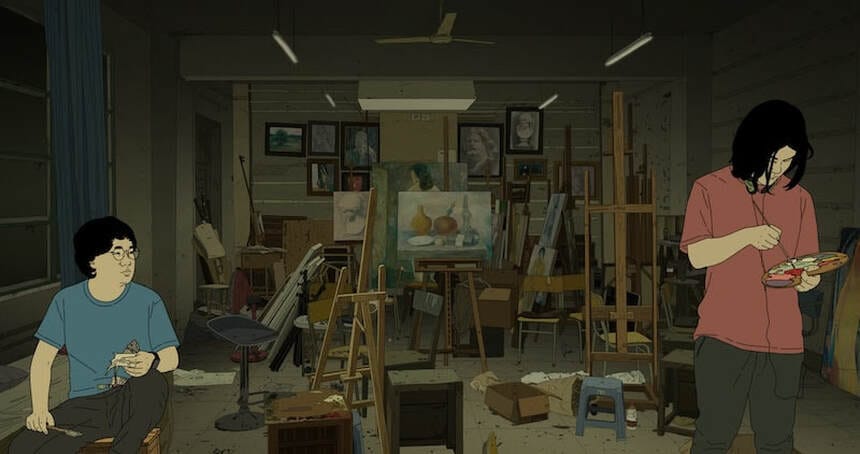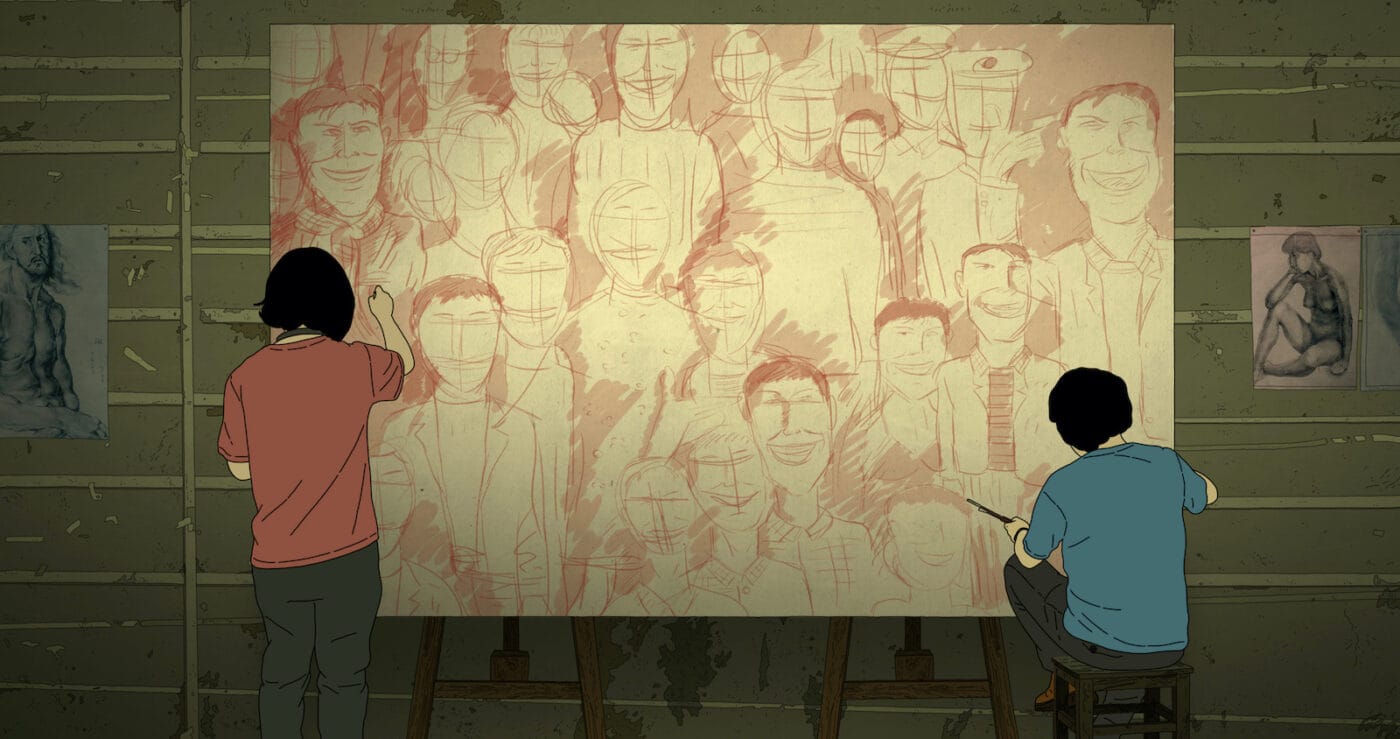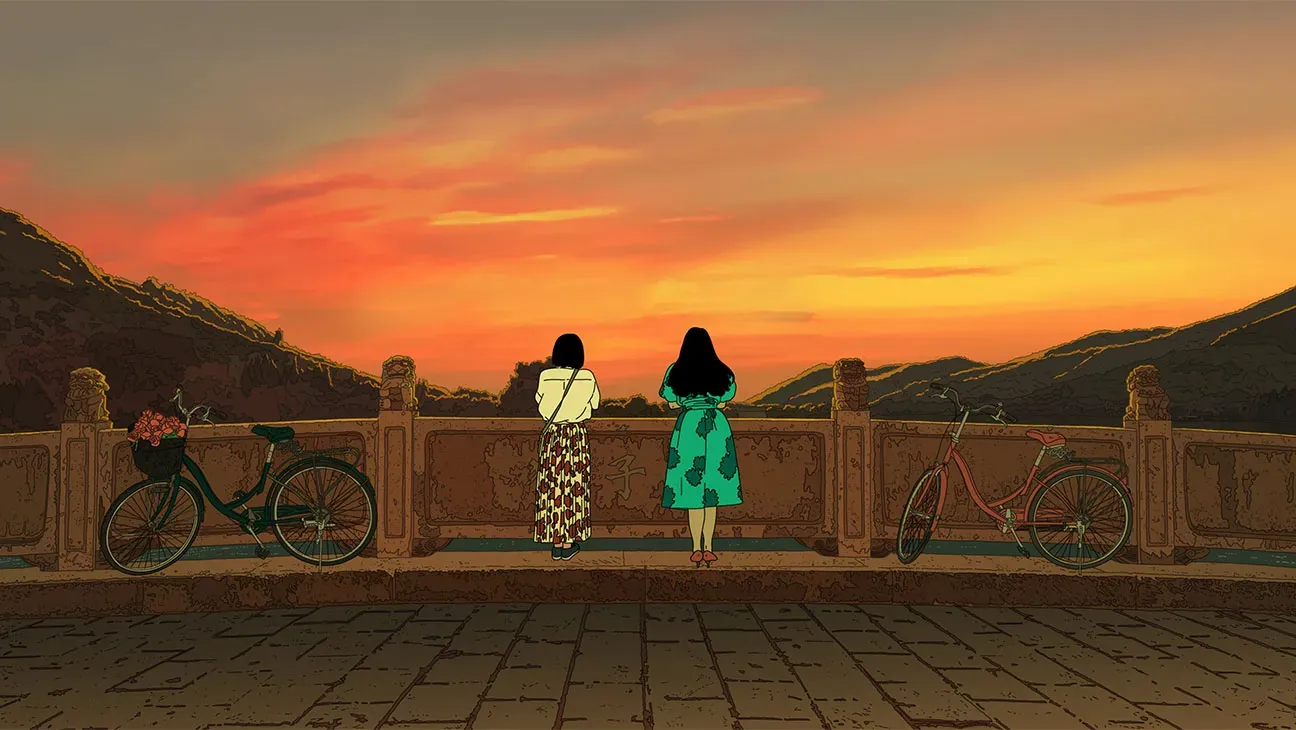Art College 1994 (Liu Jian, 2023)

I wrote about Liu Jian’s Have a Nice Day back when it played the Seattle International Film Festival in 2017. Thanks to SIFF’s arcane embargo policies, I was limited to exactly 75 words. Here they are:
The second feature from director Liu Jian is an animated network-noir that in its amoral glee at the interconnected machinations of crooks and losers recalls early Tarantino, or at least his Korean imitators. A bag of money is stolen and passes through many vicious hands in dingy, bleak sections of a city at night (the pale, grimy animation recalls a hungover Duckman), a world away from the glitzy capitalist paradises of recent Chinese urban rom-coms.
Most of those words apply equally well to Liu’s latest, set at an art school in a Chinese city in the year of Pulp Fiction, Duckman, and Kurt Cobain’s suicide. In 1994, I was beginning my first year at Gonzaga, a small Jesuit liberal-arts university in Spokane, that in most respects should be entirely unlike the experience of young people who grew up in the Deng Xiaoping era, but if Art College 1994 proves anything, it’s that mid-90s students were slackers the world over. Or at least the ones worth hanging out with were.

The film focuses on a small group of guys, aspiring visual artists (one specializes in oils, another studies traditional Chinese painting, one is into conceptual and performance art, etc) who hang around drinking beer, theorizing about life and art and women (not necessarily in that order), and occasionally attend class or work on their projects. The animation style is essentially the same as Have a Nice Day: grimy and seedy, every surface textured to the point that it looks diseased: worn-down or pockmarked, stained by stray paint or merely crumbling after decades of neglect. It’s unpleasant to look at, but it is roughly analogous to the environments of Jia Zhangke’s early films like Xiao Shan Going Home or Xiao Wu, wherein he captured the last days of his crumbling hometown as it was in the process of redeveloping into something shinier.
Since I’ve spent all week rewatching it, it’s hard for me not to compare Liu’s grungy animation with that of Kyoto Animation’s Sound! Euphonium series (and its related films, like Liz and the Blue Bird). The KyoAni works are similarly set amid the philosophical and relationship struggles of kids who are aspiring artists (in this case a wind ensemble at a high school, but the company’s works (in this series and others like K-On!, The Melancholy of Haruhi Suzumiya, Nichijou, and the film A Silent Voice) all take place in pristine environments, idealized Kyoto-area land and cityscapes that are breathtakingly beautiful and comforting, belying the emotional turmoil (or pure Looney Tunes chaos, in the case of Nichijou) their heroes face. Liu’s world, in comparison, where the outer ugliness corresponds neatly to his character’s dissatisfaction, feels too direct, too lacking in nuance. But it has a reality, a lived in feel that the KyoAni works are never interested in recreating.

It’s an essential aspect of Gen X mythology (in film, in books, and in music) that we were a generation that came of age just as everything interesting was ending. For us in America, that was the post-Reagan recession and the cultural wasteland that followed the promise of the 60s boom in rock and film. (We were wrong of course: there was always great music and film being made in America, we just didn’t get to hear it in Spokane unless we were lucky enough to know a person who had been to some other place first.) With Art College 1994, Liu is specifically linking that moment in America to what has come to be known as the Sixth Generation of Chinese filmmakers, directors like Jia who got their start in the 1990s (as Liu did), following the international success of 5th Generation prestige directors like Chen Kaige and Zhang Yimou. Liu peoples his voice cast with film luminaries of that generation: star comedian Huang Bo, actor/producer Wang Hongwei (star of those early Jia Zhangke films), and Jia himself. Joining them are more contemporary luminaries like the great actress Zhou Dongyu, director Bi Gan, and actor Dong Zijian (star of Jia’s Mountains May Depart), perhaps in a stab at generational continuity. The characters these stars voice are surrounded by signifiers of mid-90s American college life: the dorm room Einstein poster, album covers of Nevermind and Use Your Illusion II taped to walls, a cassette tape of In Utero (bootlegged of course).
Similarly, their conversations follow the pattern of the hyper-literate indie films of the time, Gen X touchstones like Slacker, Dazed and Confused, Kicking and Screaming, Metropolitan, Singles, and Reality Bites. Overeducated and undermotivated kids dealing with fashionable alienation and romantic foibles. Zhou Dongyu’s character is the closest any one of them comes to having a conventional plot, with a love interest and an arranged marriage forcing her to make a decision about her life. Everyone else just kind of drifts along, and none of them seem all that happy about it. An epilogue though, after the credits roll over some lovely painterly shots (the prettiest images in the whole movie), explains that basically everything worked out for everyone. All these affectless kids became successful in their fields, or their relationships, or both. It’s not convincing, and Liu explains it with plain white text on a black background, like one of those disclaimers certain governments put on movies to make them conform to official policy. We’ve learned to disregard those officially sanctioned, but it’s not clear that Liu intends us to similarly ignore these happy endings. Things did in fact mostly work out for my generation and Liu’s, but it’s still hard to believe it.

